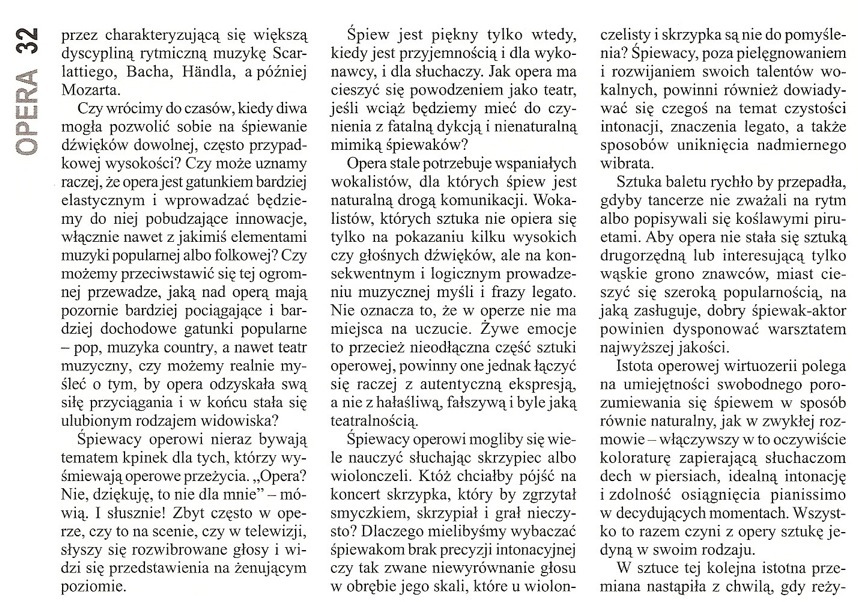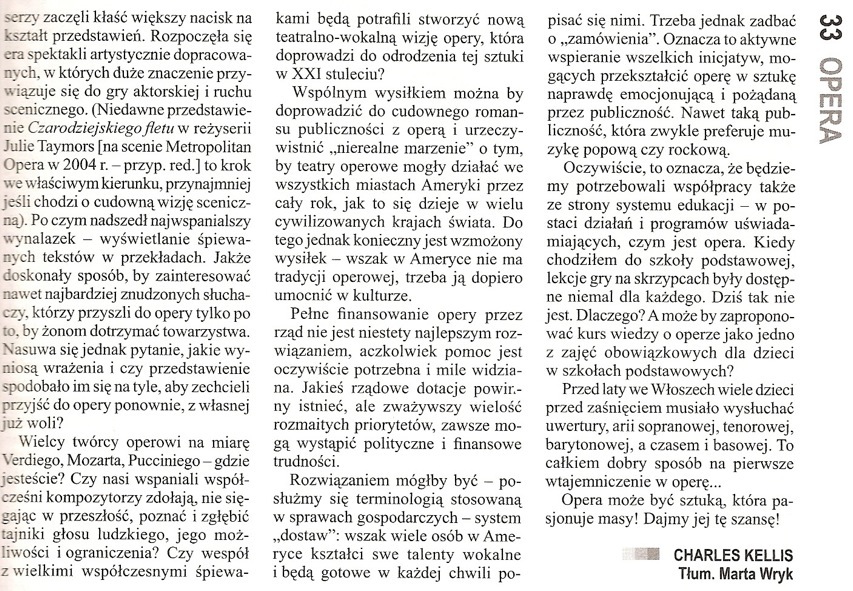CHARLES KELLIS


TWOJA MUZA (April) 2013/English


MARIA STUARDA
by Charles Kellis
After numerous altercations and much confusion due to religious and political pressures it took more than a century for the opera "Maria Stuarda" to be reintroduced as a possible addition to our standard operatic repertoire. Portraying the legendary jealous rivalry between Elizabeth, the reigning queen of England and Mary Stuart, the banished Queen of Scotland ---on New Years Eve, Donizetti's "Maria Stuarda" with the highly publicized appearance of Joyce DiDonato in the tittle role, finally reached it's first fully staged Metropolitan Opera performance. Having heretofore been only presented in concert form a few years ago in New York, including a couple of isolated fully staged productions elsewhere in the United States featuring Joan Sutherland in San Francisco in1971, Beverly Sills at her own New York City Opera in 1972 and last summer with DiDonato in Houston, ---this opera by Donizetti, unless it is used as a vehicle for a major soprano with refined musical tastes and acrobatically infused roulades of a star diva, seems not to have too much theatrical appeal.
The beautiful ensembles were performed with distinction by the wonderful Met chorus. Maestro Benini's well organized, incisively stylistic performance by the orchestra was skillfully conceived , and the highly anticipated moments of that great confrontation (that in reality never actually took place) between the two rival Queens, with the uttering of the words "Vile bastarda" were certainly riveting.
For a calculated New Years Eve performance, the spontaneity of an overly inebriated audience certainly must have added to the excitement of the yuletide festivities. Perhaps the TV broadcasts all over the world may look and sound different than what the acoustics accommodated in the actual theater experience. Since visual and sound engineers have the latest sophisticated equipment and expertise, the varied chosen scenes can obviously produce more interest through TV manipulations of movement and close-up selections, Although the music does include some very beautiful arias, duets and also even a Lucia like sextette --the staging is doomed at the outset by the very nature of it's one dimensional restrictions. The depressing second act dragged on and on making the doomsday event of the guillotine almost anti-climatic.
Despite a recent interview, Joyce DiDonato tentatively implied that operatic acting is inherently constricted by the confinement of both the musical score and the demands of the conductor, not fully allowing for the kind of creativity that a stage actress can enjoy in a regular play. She was, nevertheless, completely convincing in her portrayal of Maria. Her dedicated musicality, native theatricality and vast operatic experience vividly displayed the anguish of imprisonment, the volatile fear of confrontation, suddenly bursting into rage in her anguished confrontation with Elizabeth and her later almost humanitarian forgiveness --This might also be interpreted as shrewdly trying to insure that the future of Elizabeth's remaining days as queen would actually prove to make her more uncomfortable and insecure.
Her singing was commendable for her keen ability to always stay on pitch. It would be difficult to find even one note that was not completely in tune. Her portrayal of the role was obviously scholarly prepared, allowing for the dignity befitting an emotionally tortured Queen. My great surprise, however, was that instead of hearing what is supposed to be a Mezzo singing the role of a soprano, what I believe I actually heard was a more quasi-coloratura, singing what ostensibly should be a rather more dramatic soprano, as would be more appropriate for a strong willed, overtly passionate Maria Stuarda. Despite her undisputed singing qualities, which included very nice phrasing and the ability to make many refined musical lines seem easy, I missed the great variety of volume infusion that could make the role less monochromatic. In other words, despite all the unusual publicity ---pomp & circumstance, I believe that Joyce DiDonato ---regardless of her stature and her proven operatic ability--- would not have been my first choice for the role of Maria. This may be a little difficult to swallow, since she has already had success with both Maria in Houston as well as Elizabeth in other parts of the world, and even was greatly applauded for her Met performance, but it comes down to the fact that I don't believe she ever was a Real mezzo. There are a number of mezzos who have forayed into the soprano repertoire, notably ---Jessye Norman, Shirley Verrett and Grace Bumbry, but they were a genre of a true classical mezzo and not the recently anointed smaller-voice mezzo types who, because they basically found it difficult to extend their range, decided to remain what we might call modern misplaced sopranos. Like Sophie Von Otter, Frederica Von Stade or even Cecilia Bartolli and, yes, even DiDonato ---because of their musical and theatrical abilities they were actually able to initiate a new category of singer. Perhaps Ms. D. may now even be thinking about some more lyrical soprano roles. The most notable mezzo to have sung this challenging role was from the so called golden age. The famous Maria Malibran for whom Donizetti originally wrote the role of "Maria". She was the one who, despite having been warned she must not sing the actual words "Vile bastard" ---defied everyone into an embarrassment that caused the opera to be originally banned In Italy. She decided to never sing the role again which prompted Donizetti to drop some consequent performances.
Eliza van den Heever looked every bit like what we could possibly expect from Elizabeth. She was the almost perfect Queen Elizabeth. Her gesture of dismissing, with the wave of her hand, the aid who wanted to show her what she looked like in the mirror---said it all. Besides her beautifully ornate Queen's costume and her shining collection of jewels, she still walked like a truck driver and became a perfect fit for the role of the haughty, self righteous character who's jealousy prompted her to condemn Maria to the guillotine. Perhaps, the type casting was designed to have her over- powering, almost demonizing voice to contrast with Maria, in which case I can agree with the Logic of this choice. Otherwise, to have such a major character with such an unpleasant sound dominate the stage for such a long period, constantly screaming at the top of her lungs was actually disturbing. Granted, her strong Vibrato was not always in direct conflict when she did sing some phrases with a more Fluid consistency , but the dominant Impression was that what intended to be thrilling top high notes ended up in fact being just uncomfortably over-blown noise.
The role of Leicester was assigned to Mathew Polenzani. He is a very dependable artist and as usual he managed to handle the role with some ardent musically artistic phrasing and expression. After my applauding him greatly as Nemorino, however, I was a little surprised. His marvelous "Una furtiva lagrima" having been beautifully performed with his really unusual, mezza-voce ---was used in this production of Maria Stuarda a little too often, diminishing the wonderful effect it can create. His singing was about 60% piano singing throughout, which although well produced, still added to the mono- chromatic nature of this drab, slow moving rather static production.
The other players, the baritone Joshua Hopkins and the strong bass Mathew Rose although neither of them could be considered outstanding ---both managed to do well enough with their own respective outcome of involvement.
The final overall impression, however, rests with the best recourse for the
continued survival of this opera. Perhaps the appearance on the horizon of another Callas, or Sutherland with the desire and availability for some isolated subsequent performances. (maybe even Netrebko)? This opera has some outstanding music that can stand on its own and has been well represented in the past with Orchestra and soloists, including a good chorus.
CONCERT FORM!!!
With engaging theatrical exposure!
That is where it should enjoy it's most rewarding impact.
FINE




